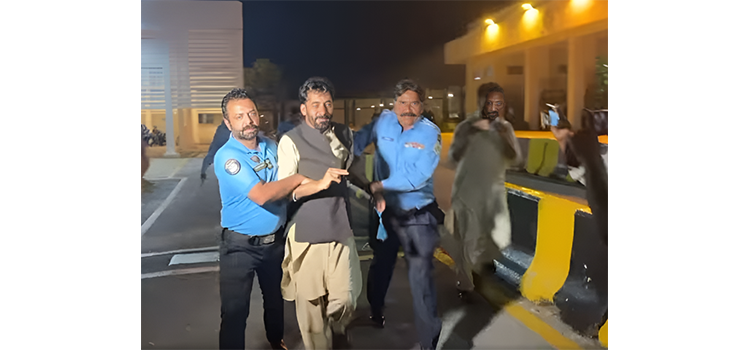In the wake of arrests made within the premises of Pakistan’s National Assembly, Speaker Ayaz Sadiq has suspended the Sergeant-at-Arms, Ashfaq Ashraf, along with four other security personnel, citing negligence in maintaining security. The suspensions follow widespread condemnation from multiple political parties over the entry of police into the assembly to detain members.
Ashfaq Ashraf was suspended for four months, while Security Assistant Waqas Ahmed and Junior Security Assistants Ubaidullah, Waheed Safdar, and Muhammad Haroon were also relieved of their duties. The suspensions come after members of the Pakistan Peoples Party (PPP), Jamiat Ulema-e-Islam (JUI), Pakistan Tehreek-e-Insaf (PTI), and Muttahida Qaumi Movement (MQM) united in their criticism of the incident, describing it as an attack on parliament.
The arrests, which took place late at night, involved prominent PTI leaders, including Sahibzada Hamid Raza, head of the Sunni Ittehad Council (SIC). The Islamabad police also detained PTI figures Barrister Gohar Ali Khan, Sher Afzal Khan Marwat, and Advocate Shoaib Shaheen outside the parliament.
Opposition leader Omar Ayub strongly condemned the police action, demanding accountability for those responsible and calling the arrests “forced abductions” that undermine democratic principles. The arrest operation occurred just after PTI had staged a rally in the capital, with the government swiftly moving to arrest the party’s leaders for allegedly violating newly enacted laws.
Adding to the controversy, sources reported that the lights inside the National Assembly were deliberately turned off before officers in plain clothes entered to carry out the detentions. The security lapse, which allowed law enforcement to infiltrate the assembly unnoticed, has now led to a crackdown on the parliament’s own security staff.
The incident marks a significant escalation in tensions between the government and opposition, with the PTI continuing to contest the government’s actions and the broader political landscape becoming increasingly fraught with legal and security challenges.
